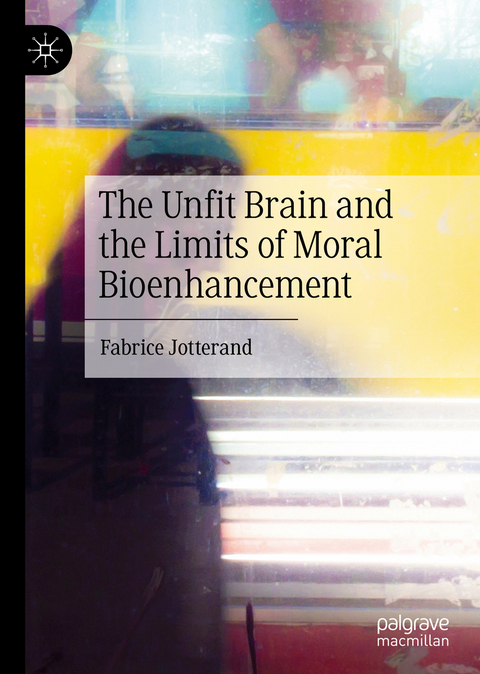
The Unfit Brain and the Limits of Moral Bioenhancement
Palgrave Macmillan (Verlag)
978-981-16-9692-3 (ISBN)
Dr. Fabrice Jotterand (PhD, Rice University) is Professor of Bioethics and Medical Humanities and serves as Director of the Graduate Program in Bioethics at the Medical College of Wisconsin, USA. He is also the Director of the Philosophies of Medical Education Transformation Laboratory (P-METaL) at the Kern Institute. He holds an appointment as Senior Researcher at the Institute for Biomedical Ethics at the University of Basel, Switzerland.
1 Introduction.- 1.1 Biology Is Not Destiny.- 1.2 Overview of the Book.- 2 The Scope and Limits of Moral Bioenhancement.- 2.1 Conceptual Issues and Scientific Realities.- 2.2 Becoming Fit for the Future.- 3 Moral Bioenhancement and the Clinical Ideal.- 3.1 The Challenge of Defining Enhancement.- 3.2 The Clinical Ideal and Enhancement.- 3.3 Clinical Ideal and Psychiatric Disorders with Moral Pathologies.- 4 Neurobiology, Morality, and Agency.- 4.1 The Neurobiology of Morality.- 4.2 Moral Judgments and the Moral Self.- 4.3 Phronesis and the Virtues.- 4.4 The Autonomous Modern Self.- 4.5 The Pathologizing of Human Behavior.- 5 Techno-Science, Politics, and the Common Good.- 5.1 Post-academic Science.- 5.2 The Implications of Postmodernity for Science and Technology.- 5.3 Beyond the Postmodern Cacophony: Deliberative Democracy.- 5.4 Applying the Deliberative Democracy Paradigm.- 6 Neurotechnologies and Psychopathy.- 6.1 Psychiatry and Moral Bioenhancement.- 6.2 Psychopathy.- 6.3 The Diagnosis of Psychopathy.- 6.4 Treatment of Psychopathy.- 6.5 Feasibility, Usefulness, and Limitations of Neurotechnologies.- 7 Punishment, Responsibility, and Brain Interventions.- 7.1 Retribution Versus Rehabilitation.- 7.2 Dangerousness and Prevention.- 7.3 Capacity and Responsibility.- 7.4 Moral and Legal Responsibility.- 8 Identity Integrity in Psychiatry.- 8.1 Technology and the Current Anthropological Identity Crisis.- 8.2 Homo Sapiens Interacting with Machines.- 8.3 Identity Integrity.- 9 Epilogue: Final Thoughts for the Path to Future Philosophical Explorations.
| Erscheinungsdatum | 10.03.2022 |
|---|---|
| Zusatzinfo | 2 Illustrations, black and white; XIII, 260 p. 2 illus. |
| Sprache | englisch |
| Maße | 148 x 210 mm |
| Themenwelt | Geisteswissenschaften ► Philosophie ► Ethik |
| Naturwissenschaften ► Biologie ► Humanbiologie | |
| Naturwissenschaften ► Biologie ► Zoologie | |
| Sozialwissenschaften ► Soziologie | |
| ISBN-10 | 981-16-9692-6 / 9811696926 |
| ISBN-13 | 978-981-16-9692-3 / 9789811696923 |
| Zustand | Neuware |
| Informationen gemäß Produktsicherheitsverordnung (GPSR) | |
| Haben Sie eine Frage zum Produkt? |
aus dem Bereich


